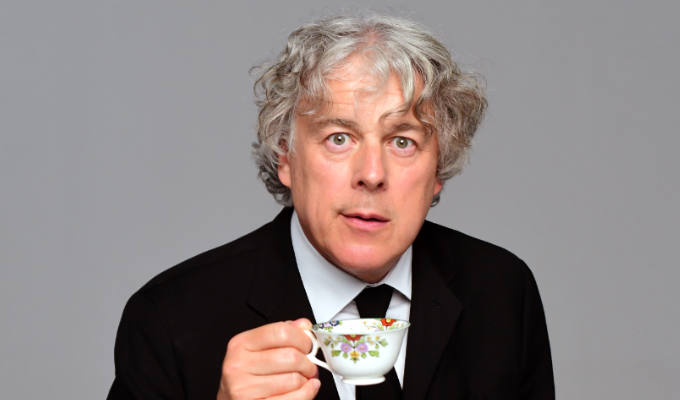
The BBC unveils big plans for comedy
New festival, financing and programmes, especially focussed on the under-represnted
The BBC has announced a raft of new measures to boost its comedy output by encouraging new talent.
Plans include a new comedy festival, a raft of pilot shows in a ‘national laughter week’, extra funding for newcomers to broadcasting, an extension of its New Comedy Award, and a new stand-up series.
The Corporation’s initiatives will all come under the umbrella of a new Comedy Association announced by the Corporation’s head of comedy commissioning Shane Allen this morning.
It ties together many existing talent schemes, as well as launching some new ones.
Among them are a Young People’s Comedy Laureate, a new role to be chosen by a committee of performers, commissioners, agents and producers to encourage under-18s to start writing and performing comedy.
The existing New Comedy Awards will also add an under-18s category to help that drive, as well as a social media category, in addition to its well-established stand-up search. And, significantly, the competition will move to TV, with the final going out on BBC One.
Next year, the Corporation will also appoint a ‘city of comedy’ to host a range of events, including the first BBC Comedy Festival for the industry and those hoping to get into it.
In February the BBC will be hosting National Laughter Week as part of a winter comedy season unveiling a host of new content and archive material across TV and radio,
That will include a series of five 40-minute stand-up shows running across a week on BBC Two, filmed across the UK in different cities in front of a socially distanced audience – similar to the Stand Up For Live Comedy series which aired as the first lockdown lifted in the summer.
BBC Three is also commissioning Laugh Lessons, an opportunity for upcoming comedy talent to submit original short opinion-led ideas to BBC commissioners to be hosted on iPlayer
Other extra help for emerging comedy talent include a ‘first time fund’ to finance four short films, not for broadcast, as well as bursaries to help people from under-represented groups get experience, especially behind the camera.
The Caroline Aherne bursary for female writers, the Felix Dexter Bursary for black and minority ethnic voices, and the Galton & Simpson bursary in conjunction with the Mental Health Foundation will continue.
Allen said: ‘Laughter is one of life’s great joys - it unites and connects us, benefits mental health and defines our national character. Yet British comedy is facing unprecedented challenges.
‘The events of the last nine months have decimated the live comedy scene which is the lifeblood of TV comedy. Careers have been cut short, avenues to new talent are drying up and new voices are being denied of a crucial platform to reach audiences.
‘As the country’s pre-eminent supporter of comedy the BBC is uniquely placed to take on the challenges we face. The BBC Comedy Association will take a proactive approach to level the playing field by throwing vital lifelines to emerging talent.
‘One of the BBC Comedy Association’s core purposes is to promote inclusion and representation on and off-screen, with a commitment to engage and enable a new wave of comedic talent. We will open up new platforms to budding comedy performers and writers. We aim to demystify what production entails and create more paths to entry across the comedy industry, making television a viable career option for a whole new generation.’
Charlotte Moore, the BBC's chief content officer, added: 'Comedy is such a critical genre for audiences, and the BBC is well placed to take on the challenges facing the comedy industry right now. Today's announcement outlines a new drive to engage and enable budding comedy talent from all over the UK to rise to the fore.'
The announcement comes after the BBC’s comedy output was criticised for institutionalised bias by a right-leaning pressure group which found three-quarters of comedians appearing on BBC shows were Left-wing Remainers with progressive views.
Published: 14 Dec 2020






